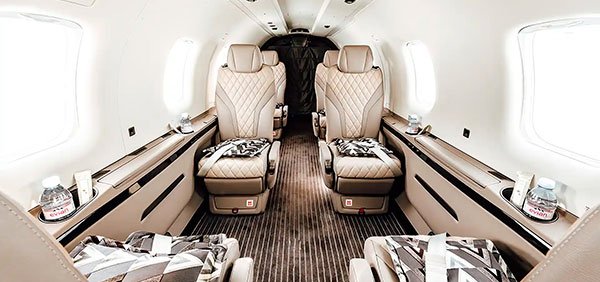Why Choose Private Jet Travel?
Private jet travel has gained popularity among individuals who prioritize flexibility, privacy, and luxury in their journeys. Whether for business or leisure, private jets offer an unmatched experience compared to commercial flights. Many travelers are turning to jet cards as a convenient and cost-effective solution for frequent private jet use. Let’s explore what jet cards are and how they work.

What Is a Jet Card and How Does It Work?
A jet card is a prepaid access tool designed to offer cardholders essential private aviation services, including:
- Guaranteed aircraft availability
- Flexible scheduling options
- Predictable costs for better financial planning
There are over 50 jet card providers and 300 programs available. Typically, jet cards start at 10 to 25 flight hours, with entry-level programs requiring deposits between $50,000 and $150,000. Travelers who fly over 25 or 50 hours per year can benefit significantly from the convenience and premium services that jet cards provide.
What Are the Typical Costs of Chartering a Private Jet?
Private jet travel offers unparalleled comfort, but it comes with costs influenced by various factors:
1. Billable Flight Time Charges
These include the hourly rate for the aircraft you’re hiring, plus the number of flight hours. For example, the hourly rate for a Super Midsize Jet starts at $5,800. Minimum flight hours are often 2, so even shorter trips may incur additional costs.
2. Aircraft Type
Hourly rates vary based on the aircraft’s size and features. Light jets accommodate 6–8 passengers, while heavy jets can carry 10–16 passengers at a higher cost. Some travelers opt for larger jets for more space, enhanced security, or luxury features.
3. Fuel Surcharges
Fuel costs fluctuate based on market trends and peak travel seasons. These surcharges are an essential part of private jet travel expenses.
4. Crew Fees
Traveling on a private jet requires a skilled cabin crew. Costs include salaries, hourly rates, hotel accommodations, meals, local transport, and insurance for the crew.
5. Handling Fees
These fees cover additional services and safety standards, which are especially important when transporting valuable goods or customizing your travel experience.
6. Federal Excise Tax (FET)
In the U.S., domestic private jet flights incur a 7.5% federal tax on top of all other charges.
How Can Jet Cards Help Reduce Costs?
Jet cards offer significant savings by providing fixed hourly rates, guaranteed availability, and premium services. This makes them an excellent choice for frequent private jet travelers looking to optimize their budgets while enjoying luxury travel.
What to Consider Before Getting a Jet Card
1. Jet Card Provider
Providers range from small-scale companies offering personalized service to large multinationals with extensive resources. Choose a provider based on your travel needs and priorities.
2. Primary Service Area (PSA)
Ensure your destinations are covered within the PSA to avoid additional surcharges for out-of-area flights.
3. Peak Day Policies
Travel on peak days may incur up to a 40% surcharge. Review your provider’s flexibility with travel dates to avoid unexpected costs.
4. Expiration and Refund Policies
Some jet card programs allow funds to roll over indefinitely, while others may have a validity period of 12 to 24 months. Check if unused deposits are refundable.
5. Booking and Cancellation Policies
Guaranteed availability programs often have lead times ranging from 6 hours to two weeks. Cancellation policies typically require 24 to 48 hours’ notice, so plan accordingly.



